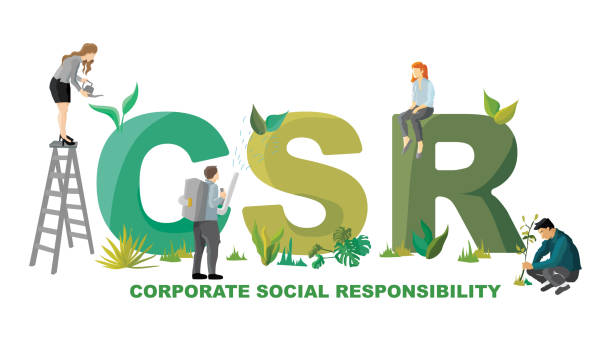Table of Contents
In today’s interconnected world, businesses are increasingly held accountable not only for their financial performance but also for their ethical conduct and impact on society and the environment. Corporate Social Responsibility (CSR) is a framework that encourages businesses to consider the social, environmental, and economic impacts of their decisions and actions. This article explores the ethical considerations in business and provides guidance on how companies can implement effective CSR strategies.

Understanding Corporate Social Responsibility
CSR is more than just a buzzword; it is a fundamental principle that guides businesses towards responsible and sustainable practices. It involves a company’s commitment to:
- Ethical behavior: Adhering to ethical principles and standards in all business activities.
- Social responsibility: Contributing positively to society and the communities in which the business operates.
- Environmental sustainability: Minimizing the negative impact on the environment and promoting sustainable practices.
- Governance: Ensuring transparency, accountability, and fairness in corporate governance.
Why is CSR Important?
There are numerous reasons why CSR is important for businesses:
- Enhanced reputation: Companies with strong CSR practices are more likely to have a positive reputation and attract loyal customers, investors, and talent.
- Increased customer loyalty: Consumers are increasingly conscious of ethical and sustainable products and services.
- Improved employee morale and engagement: Employees who feel proud of their company’s ethical and social contributions are more likely to be engaged and motivated.
- Risk management: CSR can help businesses identify and mitigate potential risks associated with unethical or unsustainable practices.
- Regulatory compliance: Many governments and regulatory bodies are increasingly demanding that businesses adopt ethical and sustainable practices.

Key Ethical Considerations in Business
There are several key ethical considerations that businesses should address:
- Human rights: Respecting human rights in all aspects of the business, including labor practices, supply chain management, and consumer protection.
- Environmental sustainability: Minimizing the negative impact on the environment through sustainable practices such as reducing waste, conserving energy, and protecting biodiversity.
- Fair competition: Engaging in fair competition and avoiding anti-competitive practices.
- Data privacy and security: Protecting customer data and ensuring compliance with data privacy regulations.
- Bribery and corruption: Adhering to anti-corruption laws and avoiding bribery and corruption.
- Corporate governance: Ensuring transparency, accountability, and fairness in corporate governance practices.
Implementing Effective CSR Strategies
Implementing effective CSR strategies requires a comprehensive approach. Here are some key steps:
- Assess current practices: Conduct a thorough assessment of the company’s current CSR practices and identify areas for improvement.
- Set clear goals: Establish clear and measurable CSR goals that align with the company’s overall business objectives.
- Develop a CSR plan: Create a detailed plan outlining the steps needed to achieve the CSR goals.
- Integrate CSR into business operations: Incorporate CSR into all aspects of the business, from product development to supply chain management.
- Communicate CSR efforts: Share the company’s CSR initiatives with stakeholders, including employees, customers, investors, and the community.
- Measure and report on progress: Track and report on progress towards CSR goals to ensure accountability and transparency.

Conclusion
Ethical considerations in business are becoming increasingly important in today’s world. By adopting a strong CSR approach, businesses can enhance their reputation, improve employee morale, reduce risks, and contribute positively to society and the environment. By understanding the key ethical considerations and implementing effective CSR strategies, companies can create a more sustainable and responsible future.

